5 Tricks to Save Money on Air Conditioning This Summer
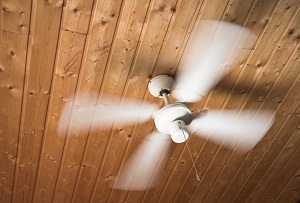
1. Fans Still Work
Just because you have air conditioning doesn’t mean you can’t use a ceiling or area fan to keep things comfortable. When a fan is running, the wind chill effect makes you feel 6 to 7 degrees cooler, which means you can raise the thermostat a few degrees, thereby saving you a little money. Don’t forget to turn off that fan, however, when you leave the room.
2. Turn up the Thermostat
Don’t get in the habit of keeping the thermostat set to 65°. The idea is to keep the house as warm as you can handle. Start at 72° then gradually increase the heat until you no longer feel comfortable. Setting your thermostat to 78° instead of 72°will save you up to 18% on your monthly electric bill. Raising the thermostat further when you’re sleeping or out of the house can also make a significant dent in your costs.
3. Keep Your A/C Systems in Good Shape
Your air conditioning will only work as well as its equipment is maintained. That means cleaning and replacing your filters once a month. If you have central air, be sure the unit’s evaporator and condenser coils aren’t covered in dust or leaves. Also, make sure any foliage is at least 2 feet away from the condenser. Simple fixes like these can save you up to 15%.
4. Avoid Generating Heat within the House
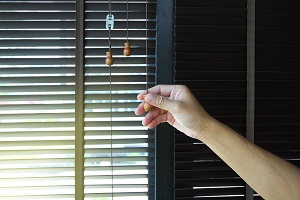
5. Leave the Shades and Blinds Closed
The sun is the problem to begin with, so you want as little sunlight within the home as possible. It’s shocking how much of a difference you’ll see in your electricity bill just by keeping the curtains closed. Hanging shades as close to the windows as you can and keeping them shut can reduce heat entering your home by as much as 45%.
Just being attentive and applying these simple tricks lets you have a great summer without suffering the sting of sky-high energy bills.
The Benefits of Using an Air Purifier
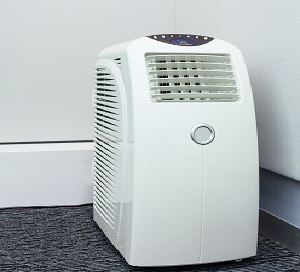
Clean Air and Lung Health
Using an air purifier guarantees that the air in your home will be clean. According to the EPA, the air indoors is, on average, two to five times dirtier than the air outdoors, sometimes even more. An air purifier can remedy this and keep you and your family healthy. The effects are especially beneficial for the lungs. Regularly breathing in pollen, dust, dander, and other particles can have a negative impact on the lungs. You and your family members may experience long-term breathing and health issues, depending on how dirty the air is. With a purifier, you can ensure you’re breathing clean air and your lungs will be healthy for a long time to come.
Remove Odors and Smoke
Air purifiers can also help to get rid of unpleasant odors in the home. All sorts of smells can fill a home, especially if you have kids or pets. Though you may love cooking and eating fish, you may not enjoy smelling it for the rest of the evening. An air purifier can help to remove odors all around the house. It can also help to neutralize the scent of smoke. Whether you have a smoker in the family, a fireplace, or an amateur chef who burns food frequently, this device can help. The purifier will trap the smoke before the smell gets stuck to your upholstery.
Pets

Dust and Other Allergens
As mentioned before, air purifiers can trap dust and other allergens that may be floating in the air. Unfortunately, there is no way to remove dust from your home completely. Even the cleanest homes will have some dust build-up. However, with an air purifier, you can catch a lot of the dust before it settles, leaving you with less clean-up to take care of. These devices can also trap other irritants, which can limit the impact of seasonal allergies. With a purifier, the whole family can breathe a little easier.
Combat the Spread of Bacteria and Germs
A good air purifier can remove up to 99 percent of airborne bacteria and particles like pollen and mold spores. When the air is cycled through the filters, the majority of these bacteria are removed. They can also prevent germs and illnesses from spreading throughout your home. Next time your child comes home from school with a cold, turn on an air purifier with a HEPA filter to neutralize 99.97 percent of airborne germs.
Tips and Tricks to Protect Your Wooden Floor from Warping
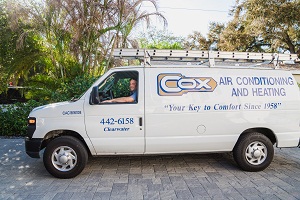
Maintain Drain Pans
Drain pans tend to collect water causing the microbes resulting in mold formation. One way to prevent this from happening is to clean the pans regularly and are make sure they aren’t sloped. When pans are dirty or sloped, water accumulates and can’t move through.
Replace You Air Filters
Follow your HVAC system’s manufacturer recommendations for changing air filters. Depending on the type of filters you use this may mean swapping out an old for a new filter once every 30 – 90 days. Dirty, wet air filters don’t work well and can’t trap containments and mold spores. Therefore, if you have an old filter, the chances are high that mold spores are spreading through your home when the heat or air is running.
Keep Ducts Clean and Dry
When was the last time you had your air ducts cleaned? If you’re like many people, the answer to that question is probably not recently. Residential air ducts trap moisture and have a buildup of dust, dirt, dander, and other allergens. If there’s any water in the air duct, this needs to be removed right away to prevent mold from becoming a problem.
Use a Mold Inhibitor and Disinfectant
Mold inhibitors are applied to the HVAC system according to manufacturer directions. When using one of these products, only use an EPA-registered, HVAC-approved inhibitor. Also, before using the inhibitor, apply a disinfectant to the system to get rid of any existing containments.
Have Air Intakes Checked

Have Humidity Levels Checked
Contact an HVAC service to check the humidity levels in your home. The less moisture you have in the home, the less likely it is that mold will develop anywhere, including your HVAC system.
Don’t let mold take control of your home. Keep it under your thumb by maintaining your HVAC system and regularly monitoring for high moisture levels. One of the best ways to do this is to purchase a maintenance package from a local HVAC company. When you have a dry home, you won’t need to worry about your family’s health or spend money on HVAC replacement, mold remediation services, or water damage restoration.
Is it Time to Replace Your HVAC System?
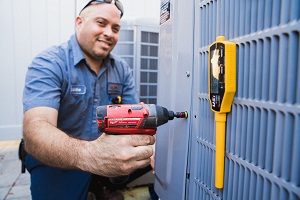
Leaking, clanking, dubious air, and even a yellowing or unsightly appearance are all signs that it’s time for an upgrade. Don’t wait until it’s too late. Call an HVAC company today to discuss your options for a stellar, up-to-date HVAC system. You owe it to yourself and the home that you’re proud of.
Without further ado, here are some telltale signs that it’s time to update your HVAC system.
It’s Older Than You
Back in the day, individuals and corporations alike weren’t so concerned with energy efficiency. Even if they were, the technology wasn’t yet available to construct systems that ran efficiently. If your HVAC system is over ten years old, there’s a good chance you’re not only wasting energy, but you’re paying more than you should be for heating and cooling.
When you install a new system, you stand to save up to 40 percent on your energy bill. Not to mention, gone will be the days where you and your guests have to look upon an unsightly thermostat and unit. You’ll be able to control the temperature of your home on a digital screen with the touch of a button, indicating that you’ve moved into the 21st century.
Undesirable Noises or Smells
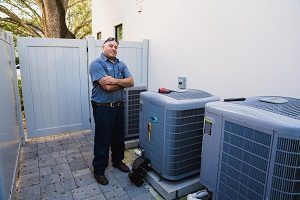
Additionally, strange smells are a sign of poor air quality. This is a sign that your system has been infested by dust, mold, excessive moisture, or other unwanted elements. If your HVAC system regularly takes in materials it’s designed to filter out, it may be beyond repair.
Repairs Cost You a Fortune
If you’ve already called in the professionals to repair your heating or cooling system a handful of times but you’re still experiencing the same problems, it’s time to move on. Yes, new installation is likely to cost more than one repair appointment. However, how many repair appointments do you need to schedule before you’re losing money? Not many.
Stop dealing with your antiquated and potentially unsafe HVAC system. Call a professional today if you notice any of the above issues as well as refrigerant leaks or lack of cool or hot air. HVAC companies offer a diverse range of services that can help you in almost any situation. All you have to do is pick up the phone.
The Benefits of UV Lights to Your HVAC System
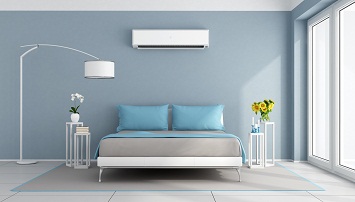
Better Airflow
Did you know that this technology, specifically ultraviolet-C (UV-C) has been used in heating and cooling systems for over 20 years? In the mid-1990s, UV lamps were marketed and promoted by health experts as a way to improve indoor air quality. However, that’s not all it does, and many homeowners don’t grasp the full benefits. One such benefit is improving air flow by preventing microbial buildup within the many components of the HVAC system. These parts include drain pas, air filters, duct surfaces, and cooling coils. Keeping these parts free of buildup goes a long way toward maintaining your system so it always works like new.
Improving air flow also means reducing maintenance costs for homeowners. When HVAC systems have to work harder, they tend to breakdown sooner. They become less efficient and homeowners notice it when their utility bills are higher, and they have to call for repairs more often.
More Energy-Efficient
What would your reaction be if you were told you could improve your home’s overall energy usage by as much as 35%? How would you feel if you knew you could do this using your existing HVAC system? Installing a UV device makes this happen. Not only does the device conserve energy, it rejuvenates existing HVAC systems’ performances to levels seen during the first year of operation. It achieves this by reducing power consumption and creating less wear and tear on the unit.
Disease Prevention
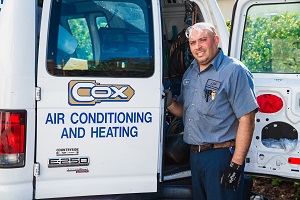
Cost-Effective
The price you pay to install UV lighting pays for itself in the following ways:
- Fewer repair bills because of overworked HVAC systems
- Less trips to the doctor and money spent on cold medicine because of respiratory illnesses
- Reduced energy costs
While the benefits of adding UV lighting to your HVAC system is something to seriously consider, it’s important to remember that you still need to maintain your heating and cooling system. Adhering to a regular maintenance schedule with a local HVAC company give you the most bang for your buck. It protects your investment and ensures that you have long-lasting heating and cooling service without unexpected interruptions.
To learn more about UV lighting, contact your local HVAC company and let the experts guide you toward the best decision for your home.
Early Warning Signs of Impending AC Failure
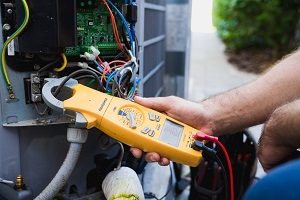
Marked warning signs could indicate that an AC malfunction is in your future. To avoid calling your HVAC specialist for potentially costly emergency services, know how to spot impending AC failure early on and call for help before it’s too late. While the cost of a new AC unit may seem upsetting in this moment, an antiquated unit could be wasting you hundreds of dollars in energy costs.
Don’t be duped by your AC unit that still miraculously “kind of” works. Invest in your comfort this spring and install a brand-new, power saving unit. Without further delay, here are some early signs that your AC won’t make it through the summer.
Lack of Cool Air
If your AC unit isn’t blowing cool air, you might as well start charging it rent as all it’s doing is taking up space. This is one of the telltale signs of an AC that needs to be retired. Over time, AC units are prone to internal issues that can result in malfunction. If the AC seems to be blowing cool air but the room is still uncomfortable, this is indicative of your unit being the wrong size for the room.
Regardless of what’s causing the problem, don’t waste the power running an AC that’s not properly cooling your home. Invest in one that will.
Aging
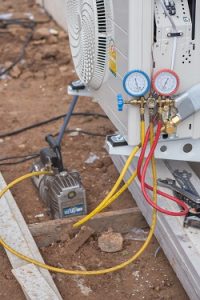
There’s also a good chance that a model over 10 years old isn’t nearly as energy-efficient as current models. Changing out your antiquated HVAC system for an up-to-date, power saving system can cut your energy costs by up to 40%. This means that you stand to save hundreds or potentially thousands of dollars per year on your heating and cooling bills.
Noises, Smells, and Leaks
Strange noises and smells are indicative of a potential malfunction as well as poor air quality. If your AC is making a clunking or grinding noise, this could mean that the fan or belt are not functioning as they should. This can lead to moisture retention, dust intake, or mold growth, all of which diminish the quality of air coming from your unit.
If you notice a leak, call an HVAC service right away as refrigerant leaks are potentially dangerous. Leaks are also a sure sign that something’s not right with your unit and that AC failure is likely to occur.
If you notice any of these signs, don’t wait. Call about AC repair or installation today.
5 Reasons to Prep Your HVAC for Spring Now
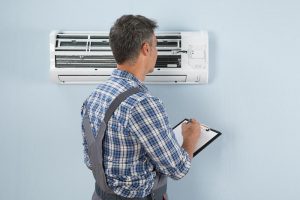
Here are five great reasons to prepare your HVAC for spring and the sunny summer months ahead.
1. A Healthier Home
Air ducts contaminated with dirt, dust or other materials can cause health problems for people who live in your home. A cleaning after the winter months can clear up any potentially hazardous materials as well as confirm your HVAC system did not suffer any damage during the winter months. If anyone in your home is prone to allergies, it’s even more important to schedule a regular cleaning of your HVAC system.
2. Improved Air Quality
Tuning up your HVAC for spring can not only protect your family’s health, but it can also improve your home’s overall indoor air quality. Having your HVAC serviced will confirm whether there are any problems with filtration, humidification and dehumidification, as well as proper ventilation. It’s important to have your indoor air quality tested to make sure your HVAC system has no leaks and that it provides fresh and clean air throughout the year, and now might be the best time to consider installing an indoor air purifying system to ensure high-quality, clean air inside your home year round.
3. Lower Utility Bills
Along with improving your air quality, a spring tune-up for your HVAC system may also result in lower monthly utility bills. Spring HVAC servicing will ensure there’s no dust on your indoor coils, breakage or leak in your ducts or layers of dirt on your outside coils. This tune-up can also confirm whether the system is low on refrigerant. Everyone loves saving money on energy bills!
4. Prevent Potential Breakdowns
No one wants to think of their HVAC system breaking down, especially during a hot Florida summer. When you schedule a tune-up, the team can ensure your HVAC system is prepared for the warm season and address any potential problems. Remember, summer heat is rough on your HVAC system, and it’s good to be prepared.
5. Extend Your System’s Lifespan
Having your HVAC system examined and serviced on a regular basis may extend its lifespan. In turn, that will save you from costly repairs. Routine maintenance can prevent small problems from becoming major headaches.
With the winter months coming to an end and the warm weather of spring upon us, there’s no better time to schedule a tune-up for your HVAC system. Whether for health reasons or simply to lower your monthly utility bill, investing in your home’s heating and cooling system is always a good idea. Contact the professionals at Cox Heating & Air Conditioning today and let us prepare your HVAC for spring and the long summer ahead.
How a Clean HVAC System Can Help Keep You Healthy
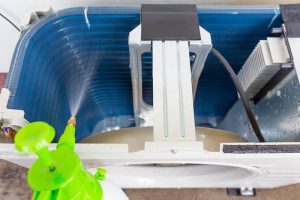
That’s why it’s important to regularly clean your HVAC system. If you fail to remove dirt and dust from ducts, you could be putting your family’s health at risk. Read on to explore the many benefits of a clean HVAC system.
Dirty HVAC System Culprits
You’re probably thinking that a little dust and dirt never hurt anybody. While that may be true, your HVAC system may have a little more than dust and dirt filtering through your home’s air. For example, pet hair is a major culprit when it comes to infiltrating your HVAC system. Cigar or cigarette smoke can also have a lasting effects. Water, new renovations and general damage to your HVAC system can also affect the quality of your home’s air.
The Downside of Dirt
Now that you know what’s potentially moving in and out of your ducts, it’s time to understand how they can affect you, your family and your home. According to the U.S. Environmental Protection Agency (EPA), contaminants in your HVAC system are filtered five to seven times daily. Further, when the dust, dirt and other contaminants are not moving throughout your home, they can build up in your air system. Thus, whatever’s in the ducts can linger for a long time and lead to health issues, such as respiratory problems, autoimmune disorders and environmental allergies.
The Components of an Air Duct Cleaning
How can you achieve a clean HVAC system? A typical HVAC cleaning will involve opening, examining and cleaning of all air ducts and vents in your home. The cleaners look for possible signs of asbestos or any other potentially hazardous material. There will also be a full vacuum cleaning and brushing of each duct to remove dust and other dangerous particles. Finally, cleaners will reseal and re-insulate any air pockets in your system. Purchasing an HVAC Maintenance Plan can help ensure your HVAC system has regular and routine maintenance and that the system is clean and running efficiently.
Energy Savings
Aside from health concerns, another great reason to have your HVAC system cleaned is the resulting energy savings. Especially during those hot Florida summer months, it’s great to save extra cash on your cooling bill. According to the U.S. Department of Energy, around 25 to 40 percent of cooling and heating is wasted. This is can be due to contaminants that infiltrate your system. That means a clean HVAC system can actually translate into some serious cost savings.
Whether you’re concerned about your family’s health or your system is simply due for a routine cleaning, removing potential contamination from your air ducts is always a good idea. Contact the knowledgeable staff at Cox Heating & Air Conditioning today, and let us help improve the quality of air inside your home.
Are You Buying the Best Air Filter for Your System?

What Does an Air Filter Do?
Your HVAC air filter prevents dust and other particles from being pumped into your home’s air through your air conditioning or heating system. A good air filter will help keep your air clean and improve your home’s internal air quality. A number of factors contribute to indoor air quality, such as the health of your HVAC system, the number of pets in your home, level of dust and weather conditions in your area. The right filter can save you money on electricity and improve the air quality in your home by removing potentially harmful particles.
Different Types of Air Filters
According to the U. S. Environmental Protection Agency (EPA), there are four main types of filters, each of which offers different costs and benefits. The first is the fiberglass filter, which is layered to filter air and held together in a metal frame. Polyester and pleated filters tend to have better dust-blocking capabilities than their fiberglass counterparts. High-efficiency particulate arrestance (HEPA) filters take out 99.7 percent of all particles. Washable filters are less common but don’t have to be replaced.
Choosing the Right Filter
There are many factors that will help determine the best air filter for your system, such as the age of your HVAC system, if you have pets, how many people live in your home and if you have allergy sufferers at home. The type of filter you need also depends on the size of your home, the length of time the HVAC system has been in use and the weather in your area. A professional can tell you which filters are best suited to your needs by taking a look at the condition of your HVAC system. Generally, if the filter is damp, dusty or moldy, this likely signals a need for replacement. Frequently worn out filters could also mean that your current filter is not working well, and you may need to upgrade or switch to a different filter type.
Filter Maintenance and Replacement
Experts recommend checking air filters once a month. You should also have your filters looked at by a professional twice a year or more frequently if you use your system a lot. The wrong filter will be less effective, and it will need to be replaced more frequently. The wrong filter can also damage other parts of your system, such as heating coils and fans. Properly maintaining filters will help keep your system running cleanly and increase the life of the system and its parts.
Why You Should Upgrade Filters
Hire a professional to ensure you have the best filter for your needs. The correct filter will not need to be replaced as often, and it will increase the life of your system by helping to protect its vital parts. Poor indoor air quality can be a big environmental and health risk for your family. Unfiltered air can compound problems with allergies and respiratory illness. Installing better filters will reduce pollutants in your air and may save you money on electric bills through increased energy efficiency.
At Cox Heating & Air Conditioning, we have a professional, well-trained staff who will simplify the process and give you the high-quality service and attention you deserve. Contact our team of skilled technicians today so we can help ensure your home is safe and comfortable.
5 Benefits of a Whole House Air Purifier
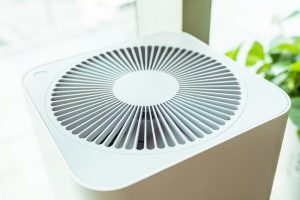
Here are five key benefits of installing an air purifying system.
1. Improved Health
Poor indoor air quality can contribute to a whole host of uncomfortable and even serious health issues. You may notice headaches, fatigue and dry, irritated eyes, nose, throat and skin. Children, seniors and people with allergies or asthma are particularly vulnerable. A whole house air purifier can drastically help by trapping pollutants such as smoke, pollen, fungus, mold spores, viruses, bacteria and animal dander. Many systems can trap and kill 95 percent of pathogens.
2. Excellent Odor Control
No matter how frequently homeowners vacuum, mop and wipe down surfaces, there’s no doubt that houses tend to harbor various odors. Perhaps a friend or family member smokes, or maybe you notice lingering pet odors. Even strong cooking smells (such as onions, bacon or fish) can become annoying over time. Air fresheners only mask the problem, but a whole house air purifier will actually remove these odors so you can enjoy fresh and clean air.
3. A Longer-Lasting HVAC System
Your heating and cooling system won’t last forever. However, in an ideal situation, you’d like yours to last as long as possible. Fortunately, whole house air purifiers will actually prolong the life of your HVAC system. Because purifiers reduce dust, dander and other particles in your home’s air, your HVAC won’t encounter nearly as many of these, so it will stay cleaner, perform more effectively and last longer.
4. Convenience and Simplicity
One major benefit of a whole house air purifier is its simplicity. Rather than adding portable air filters that can only clean the air in a room or two at one time, a whole house system can tackle your entire home. With fewer units to purchase and fewer filters to change, a whole home unit is a convenient (and cost-effective) choice.
5. Quiet and Discreet
Last (but certainly not least) is the fact that whole house air purifying systems are surprisingly discreet. While you may envision a large unit whirring away as it cleans and freshens the air in your home, the truth is that you won’t see or hear your air purifier; you’ll simply enjoy the knowledge that it’s working to improve your home’s air quality.
Investing in a whole house air purifier is a great way to improve your family’s health and comfort. Particularly as the muggy Florida summer approaches, you’ll enjoy the peace of mind of knowing your home is a cool and healthy retreat from the hot sun. To learn more about how to improve air quality in your home or schedule a service appointment, contact Cox Heating & Air Conditioning today and let us help meet your indoor air quality needs.














Recent Comments